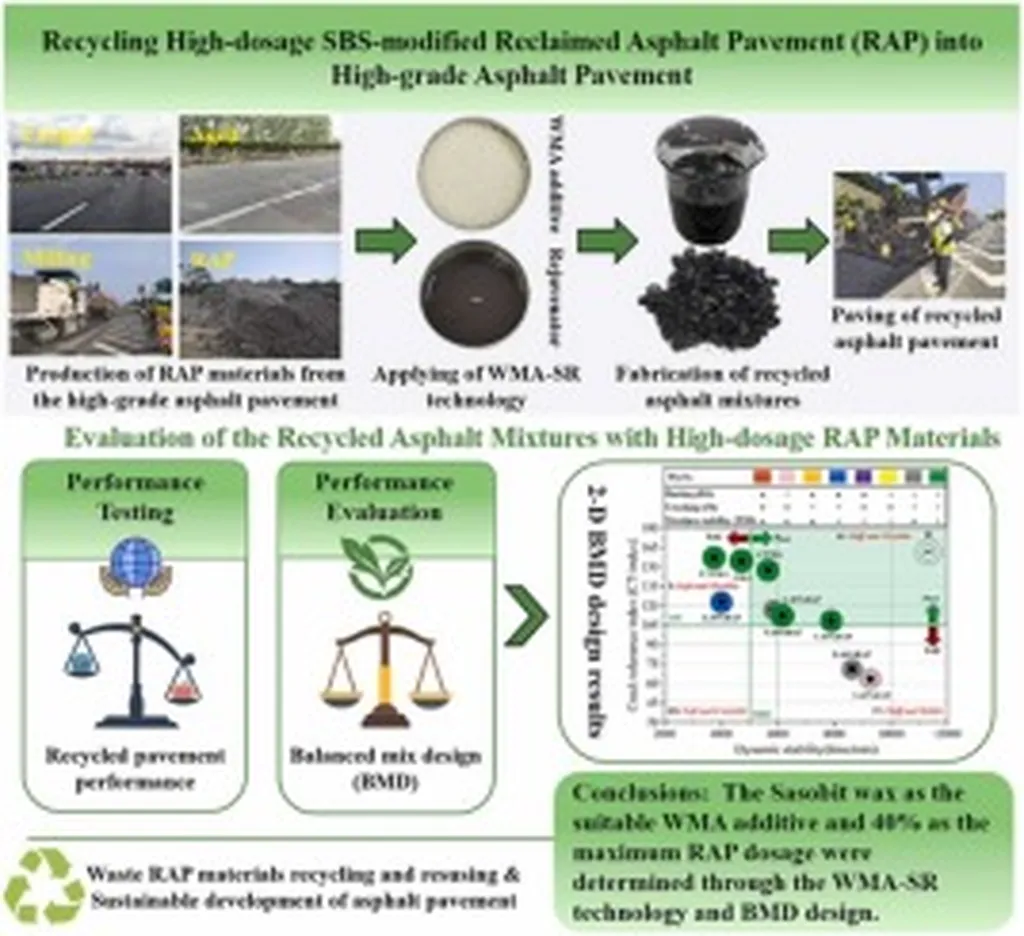In the relentless pursuit of enhancing pavement durability, a groundbreaking study led by Anisa Riaz from the Civil, Construction and Environmental Engineering Department at North Dakota State University (NDSU) has shed light on the transformative potential of Styrene-Butadiene-Styrene (SBS) modified asphalt binders. Published in the journal *Discover Civil Engineering* (which translates to “Exploring Civil Engineering”), this research offers a promising solution to the persistent challenges faced by bituminous pavements in regions with heavy traffic and extreme temperatures, such as Pakistan.
The study, which focused on modifying conventional bitumen with SBS polymer, revealed significant improvements in pavement performance. By incorporating SBS at varying dosages, Riaz and her team observed a remarkable 30–35% increase in tensile strength ratio and resilient modulus. “The addition of SBS not only enhances the structural integrity of the asphalt but also significantly reduces rutting, a common issue in heavily trafficked areas,” Riaz explained. The wheel tracking tests confirmed a 42% reduction in rut depth, indicating a substantial improvement in resistance to deformation under heavy loads.
One of the most compelling findings was the reduction in stiffness at extremely low temperatures. The SBS modification decreased stiffness by 40% at -22°C, a critical factor in preventing thermal cracking. This is particularly relevant for regions experiencing severe temperature fluctuations, where traditional asphalt binders often fail to perform adequately.
The study employed rigorous statistical analysis, including ANOVA and Tukey’s test, to confirm the significant relationship between SBS content and the enhanced performance of asphalt. The optimal dosage of SBS was determined to be 5% by weight of bitumen, striking a balance between cost-effectiveness and performance enhancement.
The commercial implications of this research are substantial, particularly for the energy sector. Asphalt pavements are a critical infrastructure component, and their longevity directly impacts the efficiency and cost-effectiveness of transportation networks. Enhanced durability translates to reduced maintenance costs and extended service life, which are crucial for industries reliant on robust infrastructure.
Riaz’s work highlights the potential for SBS-modified asphalt to address key pavement issues such as rutting and cracking, offering a viable solution for challenging climatic conditions. As the demand for sustainable and durable construction materials grows, this research paves the way for innovative applications in pavement engineering. The findings not only contribute to the scientific community but also provide practical insights for industry professionals seeking to optimize their materials and methods.
In an era where infrastructure resilience is paramount, Riaz’s study serves as a beacon of progress, illustrating how advanced materials can revolutionize the construction industry. As the world continues to grapple with the impacts of climate change and increasing traffic loads, the adoption of SBS-modified asphalt could be a game-changer, ensuring safer, more durable, and cost-effective pavements for the future.

